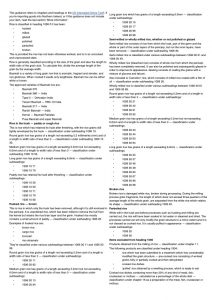The workload of maintaining post-Brexit trade with the UK is such that every day six people are diverted to troubleshooting red tape and overcoming administrative inertia for a major meat importer. This resource is additional to the routine business of managing a presence on the UK market in previous years. All around Europe, food companies are reconsidering the cost of shipping product to the UK. A number of Spanish pigmeat traders are already starting to throw in the towel on the British market and sell to Germany instead. The reasoning is clear: they know that their lorries will no longer face unpredictable treatment on arrival in customs sheds.
The Scandinavians have been selling food to the UK since the 1870s and the Danish meat sector is as firmly embedded in the UK economy as it has ever been. It operates on a scale that allows it to ship a high proportion of full loads, making it something of a rarity among the UK’s food suppliers, many of whom are seriously questioning the increased costs of a “world class” operating model.
This is not new, but for a few brief moments the British political climate might just let a few sparks of fresh thinking to take hold. It all depends on the extent to which the underlying structures of the UK’s food imports have been broken. Starting where we left off with the Brexit border tax, there is a short window during which some damage limitation might be implemented.
Top of the list of policy changes to make would be to improve the treatment of lorry drivers coming to the UK. Another objective that should be high on the list is a greater level of care and attentionrrdrþ when handling fragile goods. Fragile shipments of young plants have been refused by retailers, who operate in a very time sensitive market. The horticultural sector has been disproportionately hit by hamfisted inspection teams.

Defensive to the last, DEFRA has come out fighting and is accusing importers of deliberately making mistakes in the data entered into consignment details. For instance, there are six primary classifications for rice, a common component in ready meals. How complicated can DEFRA make it to identify the rice used in a ready meal, then? Well, the guidance for six customs codes topped 680 words and the text fills a sheet of A3 when reduced to 7.5 point. It details the rice varieties to be found. While quite interesting, it assumes knowledge and experience that is quite rarified. Oh, and you’ll need to bring your own standardised system to measure rice grains. In fact, it would be a useful addition.


